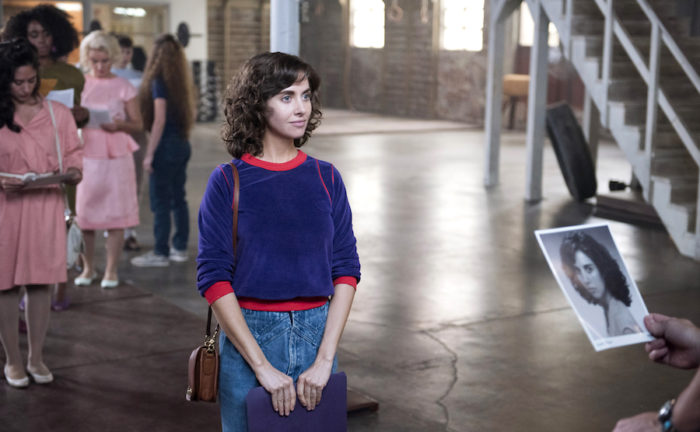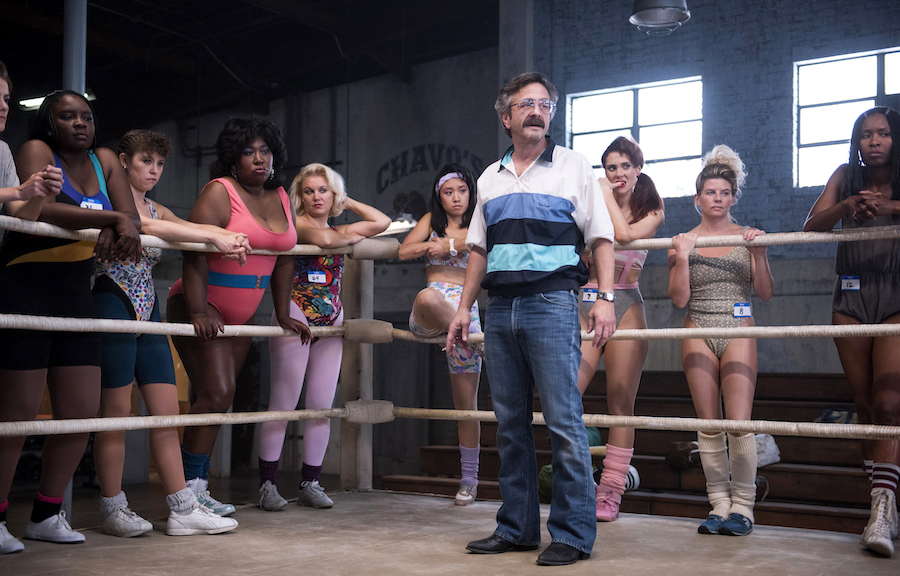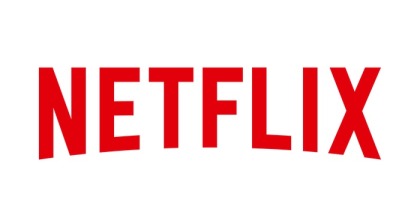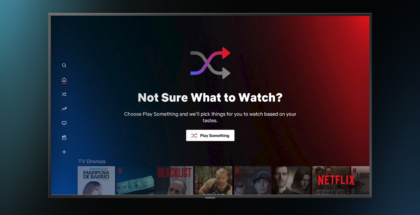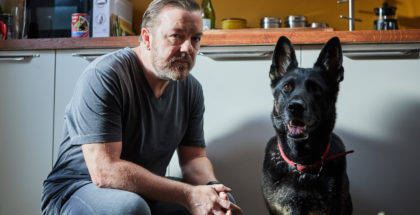First look Netflix UK TV review: GLOW
Review Overview
Death to the Patriarchy
9Likelihood of starting 80s Athleisurewear trend
8Amazing credit reels of women upon women
10Rachel Bowles | On 21, Jun 2017
GLOW opens with neon animated women fighting in the ring to Patty Smyth’s The Warrior. Much like the opening credits of recent Netflix genre crossover hit Stranger Things, it perfectly sets the tone for a completely immersive 80s world of analogue technology and pulpy fiction. But instead of creeping horror, on offer is laugh-out-loud comedy, ever-engrossing drama and, of course, the ridiculously fun aesthetics of 80s wrestling. Think hairspray, leg warmers and loud lycra leotards.
The ensuing laughter, rage and tears of the world of “GLOW” (Gorgeous Ladies of Wrestling) – a paradoxical title, which instantly highlights the tension between the objectification and the agency of the female wrestling stars – will ring true to the average female viewer, despite its high camp setting from over three decades ago. The same misogyny and racism depicted in GLOW are still rampant in 2017, and it’s not as if women haven’t been calling out this systemic dehumanisation for centuries – it’s perhaps that now there are more voices, they’re louder than ever and they are finally being given some directorial, script-writing and executive production roles. GLOW is created by Liz Flahive and Carly Mensch and with representation of women at the creative helm of shows like this comes more authentic, complex narratives about women, and how they negotiate a white, patriarchal world with men and other women.
Star wipe to Ruth (Alison Brie) in a Californian boardroom, with the Hollywood Hills to her back. Tastefully power-dressed in jade and gold, like Melanie Griffith in Working Girl or Susan Dey in LA Law, Ruth gives a compelling, impassioned speech about her company, fighting for what’s right, and perhaps a power struggle with her father – “the son of a bitch”, she angrily spits, tears in her eyes. Any wrestling nerd will be forgiven for thinking she’s perhaps a Stephanie McMahon figure, a powerful business woman behind the scenes in her dinosaur father Vince McMahon’s wrestling company monopoly WWE (née WWF). Maybe she’s fighting for women’s wrestling to be regarded as more than a sideshow. “I will not be bullied into submission,” she defiantly ends – a clever nod to GLOW’s themes.
Wiping away her tears, though, we learn that Ruth is an actress auditioning for a meaty role. “There are not roles for women like this right now,” she thanks the female casting crew. She is literally correct, however, as Ruth’s been reading for a man’s part. She apologises and reads for her intended role, knocking on the table and perkily saying: “Sorry to interrupt, your wife is on line two.”
It’s as tragic as it is comic, and sums up the problems with 80s Hollywood and GLOW’s protagonist before the three-minute mark. That’s how quick, clever and entertaining Netflix’s series is, and with a large cast, multiple storylines and the bizarre world of professional wrestling all requiring a set-up within the first few episodes (each a lean 30 minutes), it damn well needs to be. Professional wrestling may seem simple but it has a whole world of traditions, politics and lingo that is peppered in, without GLOW ever feeling heavy on exposition, alienating to those who know nothing about “sports entertainment” or too simplified so as to ring untrue to those who do.
Ruth receives an invitation to enter this world along with 12 other women. The two men in charge of the on-screen production are shlock/art house director Sam (Marc Maron), totally oblivious to his own misogyny, and bankrolling producer, 25-year-old trustafarian Bash (Chris Lowell), who sees wrestling as an art form, “despite what my mother says”. They clash on vision: Sam wants to make a complex “jerk off space opera”, as Bash describes it, while he wants a complex cyberpunk sci-fi on “the limits of feminism and nucleur power”, explains green, young and academic Justine (Britt Barron).
Bash and Carmen Wade (Britney Young) of the Wade wrestling family dynasty – wrestling often being a family business – know instinctively that their ladies’ personas must be simple and stereotypical, to the point of lowest-common-denominator bigotry – and the politics of these characterisations are thrashed out in the squared circle, making wrestling a contradiction of the most conservative and the most radical of entertainments.
The on-screen “GLOW” cast is made up of a ragtag bunch of “non conventional” women and, although they may be stereotyped in the ring, their characterisation outside rarely is. Despite the diversity of the cast – for example, there are multiple queer and POC characters that we need to get to know fairly rapidly – they aren’t reduced to cliches, although their conflicts with misogynoir, sexist orientalism and homophobia are easily recognisable and accurate. It’s a fine line that GLOW tows impeccably.
This is achieved by a drip-feeding of characterisation – often through a scene, a few lines, a glance. The show’s brilliance of brevity is a true achievement in storytelling. However, it has the odd casualty. For example, Kate Nash’s Rhonda remains somewhat of a blank, almost an ingénue figure until Episode 3, in which we learn she’s homeless, living in her car. When the GLOW women move into a cheap LA motel (with a pool), a makeshift cloistered training gym for wrestling and creative character and storyline development, she is overjoyed to have a mattress to sleep on. This is a mere quibble, however, in a show that really hits its stride by episode three and will make you a complete mark by four.
GLOW Season 1 to 3 is available on Netflix UK, as part of an £9.99 monthly subscription.


